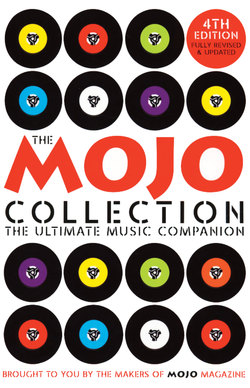Читать книгу The Mojo Collection - Various Mojo Magazine - Страница 162
На сайте Литреса книга снята с продажи.
The Who Tommy Huge double concept-album, the first rock opera, spawning a movie, an orchestral spin-off and a stage musical.
ОглавлениеRecord label: Track (UK) Decca (US)
Produced: Kit Lambert
Recorded: IBC Studios, London; September 19, 1968–March 7, 1969
Released: May 23, 1969
Chart peaks: 2 (UK) 4 (US)
Personnel: Roger Daltrey (v, hm); Pete Townshend (v, g, k); Keith Moon (v, d); John Entwistle (v, b, k); Damon Lyon-Shaw (e); Chris Stamp (executive producer)
Track listing: Overture; It’s A Boy; 1921 (You Didn’t Hear It); Amazing Journey; Sparks; Eyesight To The Blind (The Hawker); Christmas; Cousin Kevin; The Acid Queen; Underture; Do You Think It’s Alright?; Fiddle About; Pinball Wizard (S); There’s A Doctor; Go To The Mirror!; Tommy, Can You Hear Me?; Smash The Mirror; Sensation; Miracle Cure; Sally Simpson; I’m Free; Welcome; Tommy’s Holiday Camp; We’re Not Gonna Take It
Running time: 74.00
Current CD: Universal 9861011 is a 2-disc Hybrid/SACD set that adds a second disc of outtakes and demos.
Further listening: The Who’s other classic rock opera, Quadrophenia (1973)
Further reading: Anyway, Anyhow, Anywhere: The Complete Chronicle Of The Who 1958–1978 (Roger Daltrey, 2005); The Complete Guide To The Music Of The Who (Chris Charlesworth, 2004); www.thewho.net
Download: iTunes
Early in 1968, Pete Townshend had emerged from an encounter with Indian mystic Meher Baba with a growing sense of frustration at the limitations of rock in general, and The Who in particular; he announced to the NME that on their next record he wanted The Who to ‘preach’, a notion he’d first approached in an aborted song called You’ve Gotta Have Faith In Something Bigger Than Yourselves. However, he recognised that Roger Daltrey might not look convincing singing that one, so he went back to work on their fourth album – provisionally titled Who’s For Tennis – and started coming at the idea from a different direction.
Townshend had often been musically ambitious. A Quick One was an unprecedented nine-minute song cycle, The Who Sell Out packaged itself as a pirate radio show devoted to the band. But that was primitive stuff compared to the scope of what he eventually unveiled: Tommy – the seemingly bizarre idea of a thematic double album telling how a deaf, dumb and blind boy found salvation in his genius on a pinball machine and became the leader of a reclusive religious cult. It still sounds mad, but in an age when rock heroes were taking on the persona of prophets, Tommy was both credible and captivating, orchestral links lending gravitas to The Who’s characteristically colourful pulsating rock which swung from the proto-prog grandeur of Amazing Journey to the music-hall jauntiness of Tommy’s Holiday Camp and the searing rock of Acid Queen.
‘I wanted the story of Tommy to have several levels, a rock singles level and a bigger concept level,’ Pete wrote later. ‘I wanted it to appeal as a fairy story to young kids and also be intellectually entertaining. And I wanted it have a spiritual message too.’
Not everyone bought it. ‘It’s sick!’ denounced horrified Radio 1 DJ Tony Blackburn, and plenty of critics shared his view.
‘Tommy wasn’t as big a success as people now imagine,’ says Roger Daltrey, ‘not when it was released anyway. It wasn’t particularly big at all – it was only after we’d flogged it on the road for three years and played Woodstock and things like that it got back in the charts. Then it stayed in the charts for a year and took on a life of its own.’
